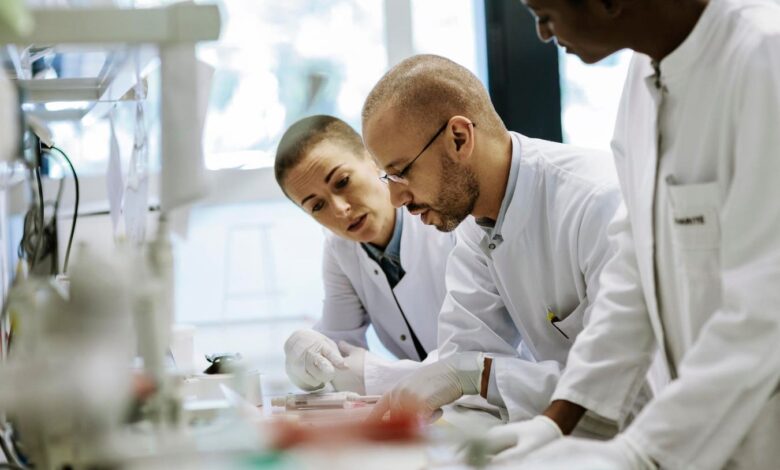Colon Cancer Rising In Young Adults, Research Examines Gut Bacteria

Heather Candrilli, a 36-year-old mother of two, is currently battling metastatic colon cancer, shining a spotlight on the pressing need for education, research, and advocacy for young adults facing increasing rates of this disease. Her journey began two years ago with symptoms of persistent abdominal bloating and rectal bleeding, which she initially attributed to postpartum issues after giving birth to her son. Despite mentioning her symptoms to a clinician, she was dismissed and told it was likely due to internal hemorrhoids. However, as her symptoms worsened over the following year, further tests revealed that she had colon cancer that had already spread to her liver.
Heather has undergone 21 rounds of chemotherapy and had the tumor surgically removed from her colon. However, the tumors in her liver persist, leading her to be placed on the liver transplant list while awaiting a donor match. In the meantime, she is also seeking funds to cover her extensive medical costs, with the hope of eventually becoming cancer-free.
The increasing incidence of colon cancer among young adults, like Heather, has raised questions among scientists about the underlying causes of the disease. While genetic mutations may play a role in some cases, many individuals, including Heather, do not have a family history of colon cancer or test positive for such mutations. Researchers are now exploring the potential influence of the gut microbiome, the diverse community of microorganisms residing in our digestive system, on cancer risk. Recent studies have highlighted the role of toxins produced by certain gut bacteria, such as colibactin from E. coli, in damaging DNA in colon cells and potentially contributing to cancer development.
While screening and lifestyle modifications remain essential for colorectal cancer prevention, the discovery of microbiome-derived genotoxins has added a new dimension to understanding the disease. Early detection is crucial, with guidelines now recommending regular colon cancer screening starting at age 45. However, efforts are underway to lower the screening age to 35, particularly for individuals like Heather who were diagnosed with advanced colon cancer at a younger age.
In addition to advocating for earlier screening, Heather emphasizes the importance of recognizing and addressing symptoms of colon cancer promptly. By raising awareness and encouraging individuals to listen to their bodies, she hopes to empower others to seek medical attention early. By sharing her story and advocating for improved access to care, Heather is not only fighting her own battle against cancer but also helping to educate and support others in similar situations.



